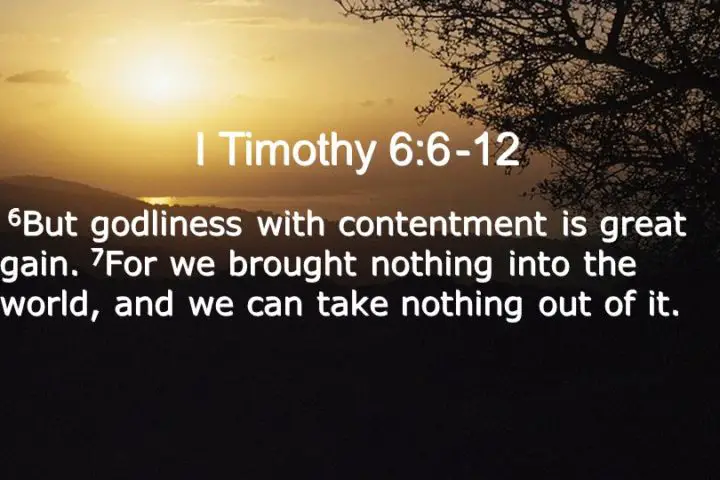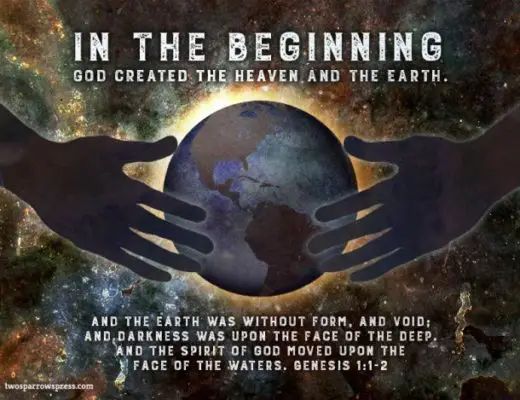But godliness with contentment is great gain. For we brought nothing into the world, and we can take nothing out of it. But if we have food and clothing, we will be content with that. People who want to get rich fall into temptation and a trap and into many foolish and harmful desires that plunge men into ruin and destruction. For the love of money is a root of all kinds of evil. Some people, eager for money, have wandered from the faith and pierced themselves with many griefs.
1 Timothy 6:6-10
In the book of 1 Timothy, Paul writes to Timothy with instructions for the church in Ephesus. One way the church has wandered is by following corrupt teachers focused on using their religious profession for money-making purposes. Thus, 1 Timothy 6:6-10 provides a critique of these money-loving ministers, but it also provides universal principles of the dangers of pursuing worldly wealth. It is these dangers that we will explore next.
The Dangers of Pursuing Worldly Wealth
In the first launchpad for meditation we will consider four warnings for worshiping wealth.
First, wealth does not bring about great gain. Instead, it is godliness with contentment that produces great gain.
Contentment does not come from self-sufficiency rooted in money but Christ’s sufficiency centered on the cross. For in Philippians chapter 4, Paul’s learning to be content in all circumstances is only through the power of Jesus. Regardless of how much money we have, contentment is found in Jesus.
Second, worldly wealth does not last. Paul’s caution echoes the critique of wealth found in Ecclesiastes 5:15, “Everyone comes naked from their mother’s womb, and as everyone comes, so they depart. They take nothing from their toil that they can carry in their hands.”
Bill Gates and the beggar on the street both end life with the same amount of material possessions. Nothing.
Since, you can’t take wealth with you, it is better to pursue godliness with contentment. Or as Paul writes in 1 Timothy 4:8, “For physical training is of some value, but godliness has value for all things, holding promise for both the present life and the life to come.”
Third, be satisfied with the basic necessities. Rather than asking what you can afford, consider what you can afford to live without. Rather than asking what your peers are buying, consider whether the Lord would be pleased with your purchases. This need not mean living in poverty but likely would result in a relatively simple lifestyle in comparison to the culture of consumerism around you.
Fourth, a desirous love of money leads to ruin and destruction. To drive home his point, Paul uses three metaphors. First, desires for wealth without appropriate restraints tempt us into a trap. We become like animals caught in a trap. Second, once inside this trap, we are plunged into ruin and destruction. The image is one of drowning beneath the surface of an ocean of disaster. Third, with the graphic picture of impalement, Paul describes the pain caused by wandering away from the faith in pursuit of wealth. It is a self-inflicted harm, the piercing of oneself with many griefs.
Love God, not Money
In the second launchpad for meditation, we will mull over the impact of distorted loves. We will ponder how loving anything (including money) more than God, harms us and the world around us.
God’s commands are not meant to burden us, but to bring us to the freest experience of our humanity. Thus, it only makes sense that failing to follow the first great commandment leads to ruin. When we fail to love God will all our heart, soul, and mind by giving our lives to idols, we miss out on experiencing a fullness of life.
For example, pursuing the dream of wealth may lead to intense emotional pain when the wealth is not realized. Or spending every waking hour climbing the corporate ladder may destroy personal relationships.
This principle of love out of balance leading to ruin applies not only to money but to everything.
For example, Timothy Keller writes, “If you love your children more than you love God, you will essentially rest your need for significance and security in them. You will need too much for them to succeed, be happy, and love you. That will either drive them away or crush them under the weight of your expectations, because they will be the ultimate source of your happiness, and no human being can measure up to that.”
So, my prayer today is that we would examine our lives in search of what wreckage is the result of our distorted loves. What griefs in our lives are the result of loving created things more than the creator God? I pray that rather than being caught up in these things, we would flee towards “righteousness, godliness, faith, love, endurance, and gentleness” (v. 11).



